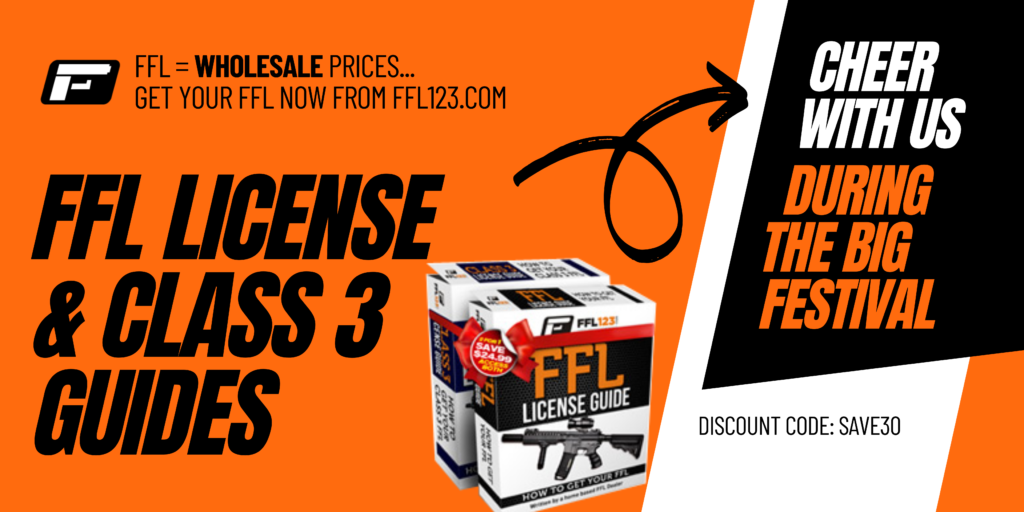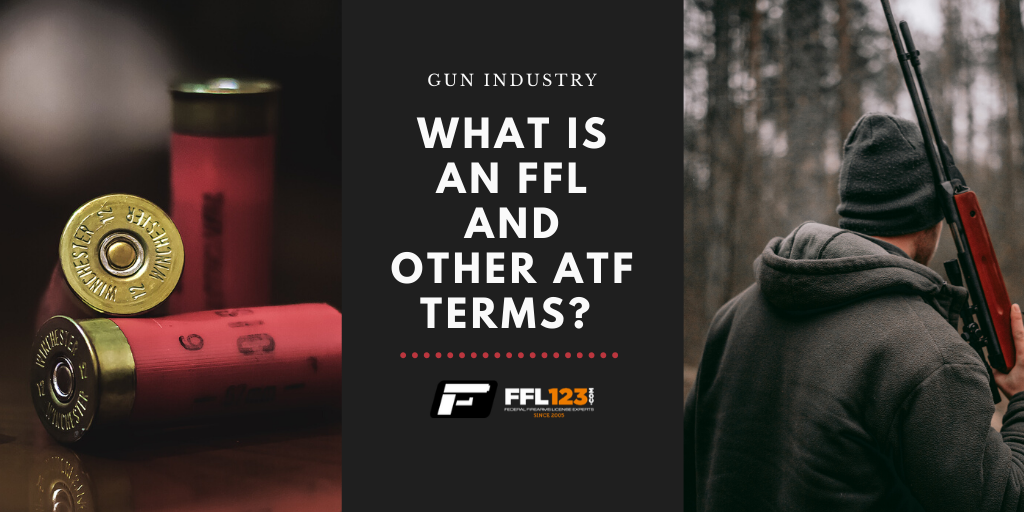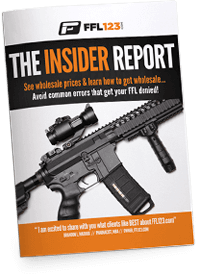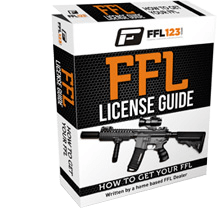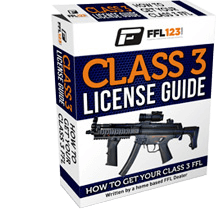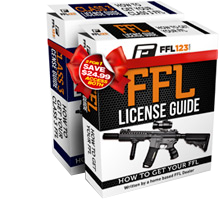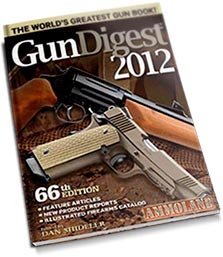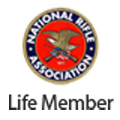Like with any industry, the gun industry has specific words and terminology that may not be easily understood at first glance. Gun dealers and gun owners often use these terms, and it is important to know what they mean and how to correctly use them. Because many of these terms have a specific legal meaning, we’ve made a handy guide explaining many of these commonly used words and terms.
Table of Contents
What is an FFL?
FFL simply stands for Federal Firearms License. This is the license all people (or businesses) who do commercial firearms sales, or gun and ammo manufacturing have to have. The FFL meaning covers a lot of different kinds of licenses like a license for collectors, licenses to manufacture guns or ammo, or even to make and sell things like silencers.
When people talk about an FFL it can mean a few different things in context. FFL might simply mean a copy of the license, or the license itself. You can also say “An FFL dealer” or “FFL holder” to refer to somebody with an FFL. An “FFL transfer” means transferring a gun through a dealer. Basically FFL either means the license, or the person or business with the license.
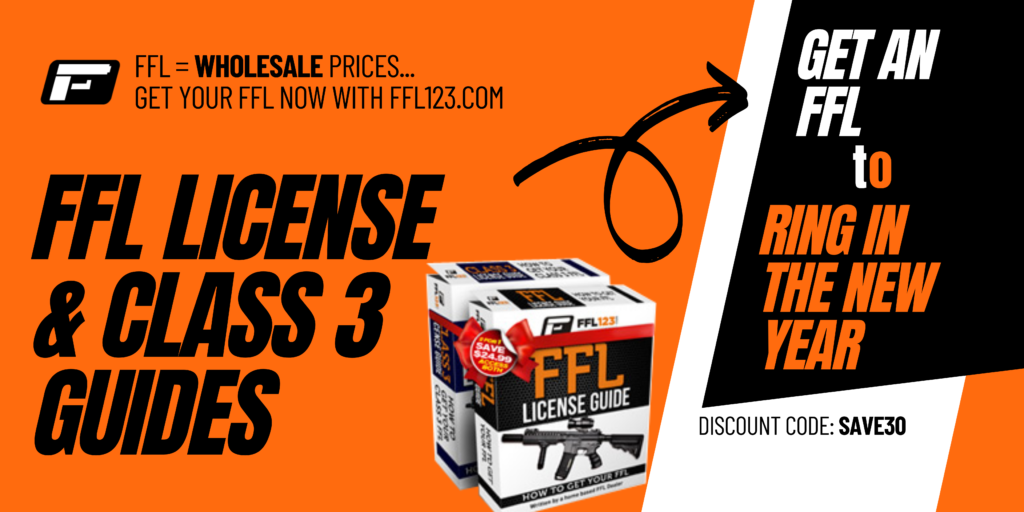
What is a Federal Firearms Licensee?
The term Federal Firearms Licensee is closely related to the FFL meaning we already discussed. This is the person or business who has the license. When people speak of a Federal Firearms Licensee, it is a specific legal term that refers only to the licensed person and their business.
This term is usually used to differentiate between the catchall term “FFL” and the very specific meaning of licensee.
What is a SOT?
A SOT is a Special Occupational Taxpayer, that is to say, somebody who pays a fee to the ATF for the ability to deal in or manufacture NFA items like silencers. A Class 3 dealer is something of a misnomer because that term is more made-up than official. But it is in common use and tends to be a shorthand for somebody who deals in (but doesn’t make) NFA items.
What is a C&R License?
The 03 FFL, or Curio and Relic License, is one of the easiest FFLs to get, and it’s also wildly popular. In fact, it is the only FFL that does not require an examination to get – or even fingerprints – and it costs just $30!
Sounds pretty good, doesn’t it? Of course, there is a catch. (There’s always a catch.) You cannot use this license for commercial purposes. The 03 FFL is only for building a personal collection of guns that are at least 50 years old or older that are in their original configuration. In other words, it’s very much a collector’s license for the purpose of collecting.
What is the FFL Transfer Process?
An FFL transfer is the use of an FFL licensee to conduct required background check(s) on a gun buyer and then transfer the gun to the buyer.
The FFL transfer process involves multiple steps designed to not only demonstrate compliance with federal and state laws, but also to track the acquisition and disposition of the gun while it is in the FFL licensee’s possession. The FFL transfer process generally goes something like this:
- FFL dealer receives the gun. This can be shipped to them, or simply brought in for a private transfer with the FFL holder performing the background checks.
- The purchaser fills out an ATF form 4473.
- Any other state required forms are filled out by the buyer.
- The FFL licensee runs the background check by either phoning it in, or submitting it digitally.
- In most cases the background check is completed in a couple minutes, and assuming there are no other state requirements, and the buyer was approved, then the FFL transfer process is complete.
As you can see, the FFL transfer process is mostly focused on ensuring compliance with record keeping and background check laws, and to ensure that people who can’t own a gun cannot have one transferred to them.
What is an FFL License Application?
The FFL license application is the application and steps you have to take to get your FFL license. Like any government paperwork, it can be complex and confusing. The highly regulated nature of FFL’s and the extensive background checks required to receive an FFL make sometimes make a successful application difficult.
To start an FFL license application, you only start by filling the application out. To correctly fill it out, you have to provide information about yourself, business partners, where you are doing business, zoning information and more. When you purchase FFL123’s application guide , we’ll walk you through the entire process of filling out the FFL license application.
But the FFL license application doesn’t just involve the paperwork. You have to submit identifying information and fingerprints as part of the application process. FFL123 will help you with that too. The final step of the application process is to be interviewed by an ATF agent to make sure your location is fully compliant with the nature of your requested license, all zoning regulations are met, and that you will demonstrably be in the business of selling firearms as opposed to operating for your personal use.
When you buy the FFL123 license guide, not only do we show you how to jump through all these hoops, but we also offer personalized support for the entire process and even after!
Conclusion
There are a lot of gun industry specific buzzwords and phrases that might seem confusing, but are pretty simple when heard or read in context. Even complex issues like an FFL license application are made simple when broken down with expert guidance from FFL123.
FFL123 continues to be America’s number 1 FFL license application guide. We have helped thousands of people get their FFL and offer an ironclad guarantee. Get your FFL or get 150% of your money back.
